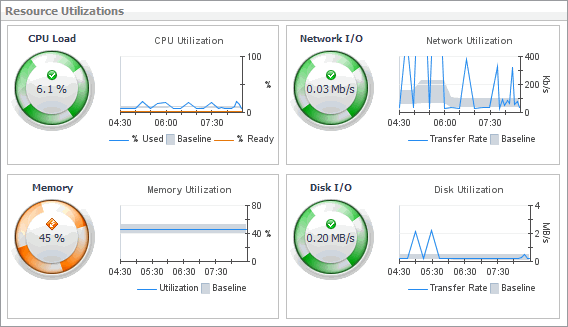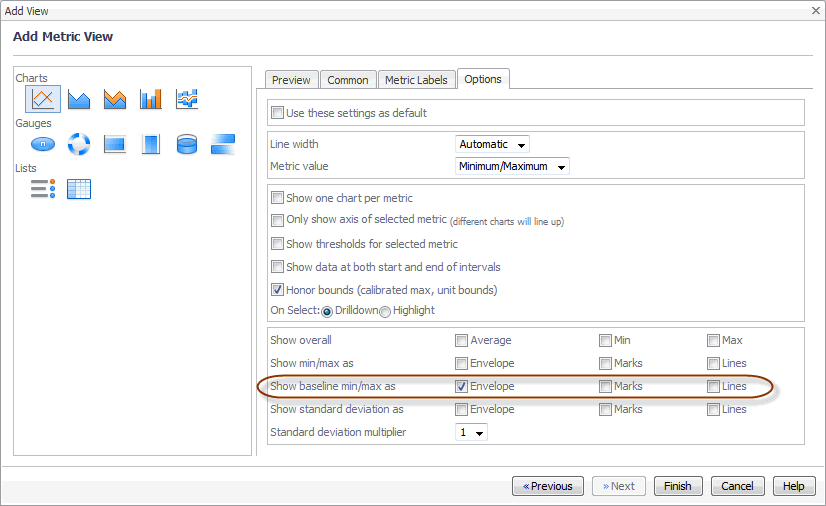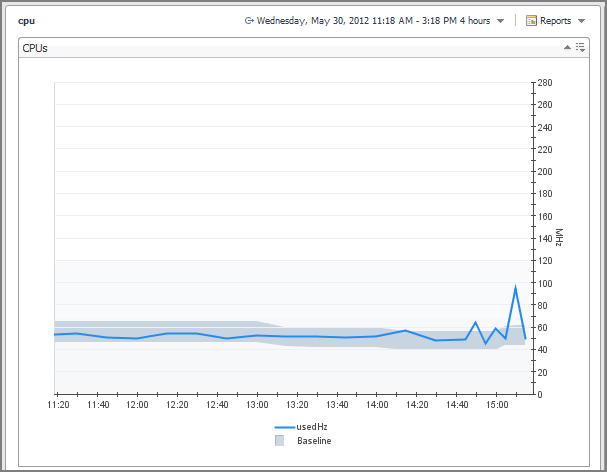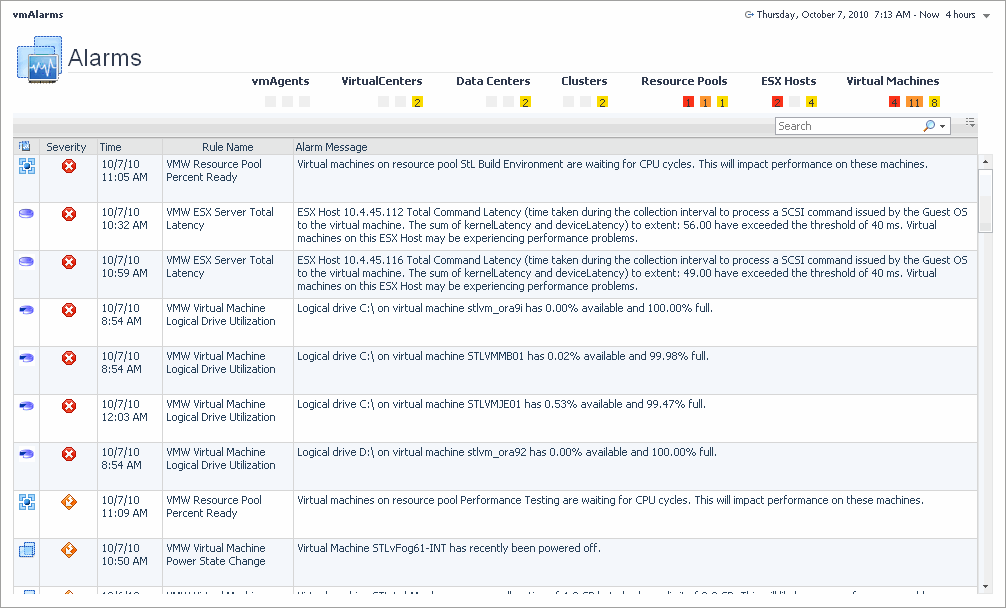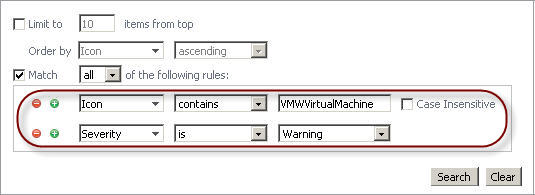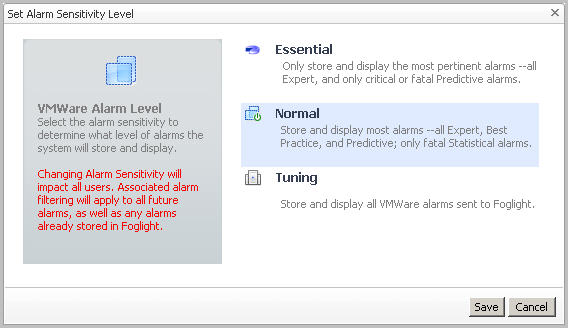Viewing baseline ranges
Start creating a custom dashboard by clicking Create dashboard on the action panel. From there, create a view and add one or more of the data elements listed above. For complete information about custom dashboards and how to get started, refer to the Foglight User Help and the Creating Custom Dashboards learning video.
Before finishing, edit the view properties and enable the appearance of the baseline minimum and maximum values by selecting one or more of the Show baseline min/max as check boxes.
Exploring VMware alarms
To access this dashboard, from the navigation panel, under Dashboards, choose VMware > vmAlarms. For reference information about the data appearing on this dashboard, see VMware Alarms views .
Filtering alarms
The vmAlarms dashboard provides some filtering controls. Use it to isolate alarms related to a specific bottleneck or issue in your virtual environment. The Search box appears in the top-right corner of the alarm list.
For more advanced filtering, click the down-facing arrow, and in the list that appears, click Advanced Search. A dwell appears.
To search on a Foglight for VMware object name, select Match all of the following rules, and in the Icon box below, type a full or partial name of the object you want to search for, and then click Search. The Alarms List refreshes, showing only those alarms that are generated against the specified object type. For a list of icons and the related object names, see Virtual Infrastructure View Object Icons .
If you want to search on an alarm severity or rule name, or to combine different search criteria, update or add one or more rules in the Match all of the following rules area. For example, to search for alarms generated against a specific object type and have a specific severity, create one rule to specify the object type, and one for the rule severity.
For more information on filtering lists in Foglight for VMware, refer to the Foglight for VMware User Guide.
Setting the alarm sensitivity level
The Administration tab on the VMware Environment dashboard enables you to configure the level of alarm sensitivity. The Foglight® for VMware alarm sensitivity reflects the level of alarms the system stores and displays.
|
1 |
On the VMware Environment dashboard, open the Administration tab and click Set Alarm Sensitivity Level. |
|
3 |
Click Save. |

